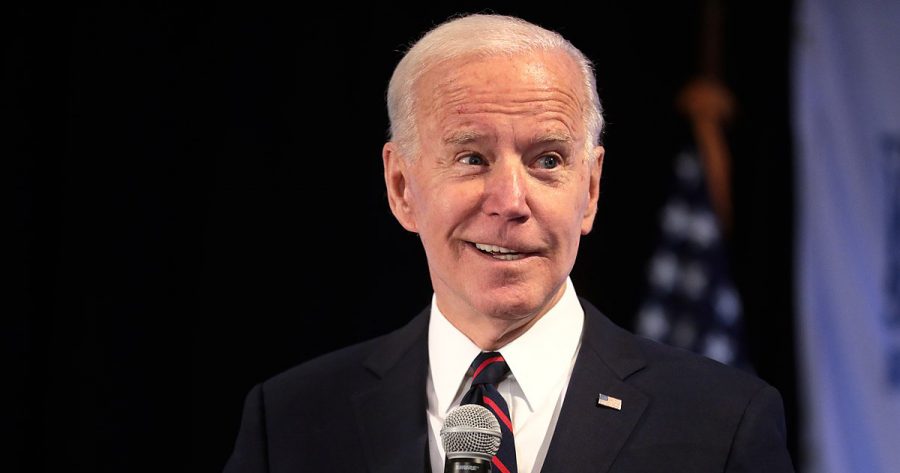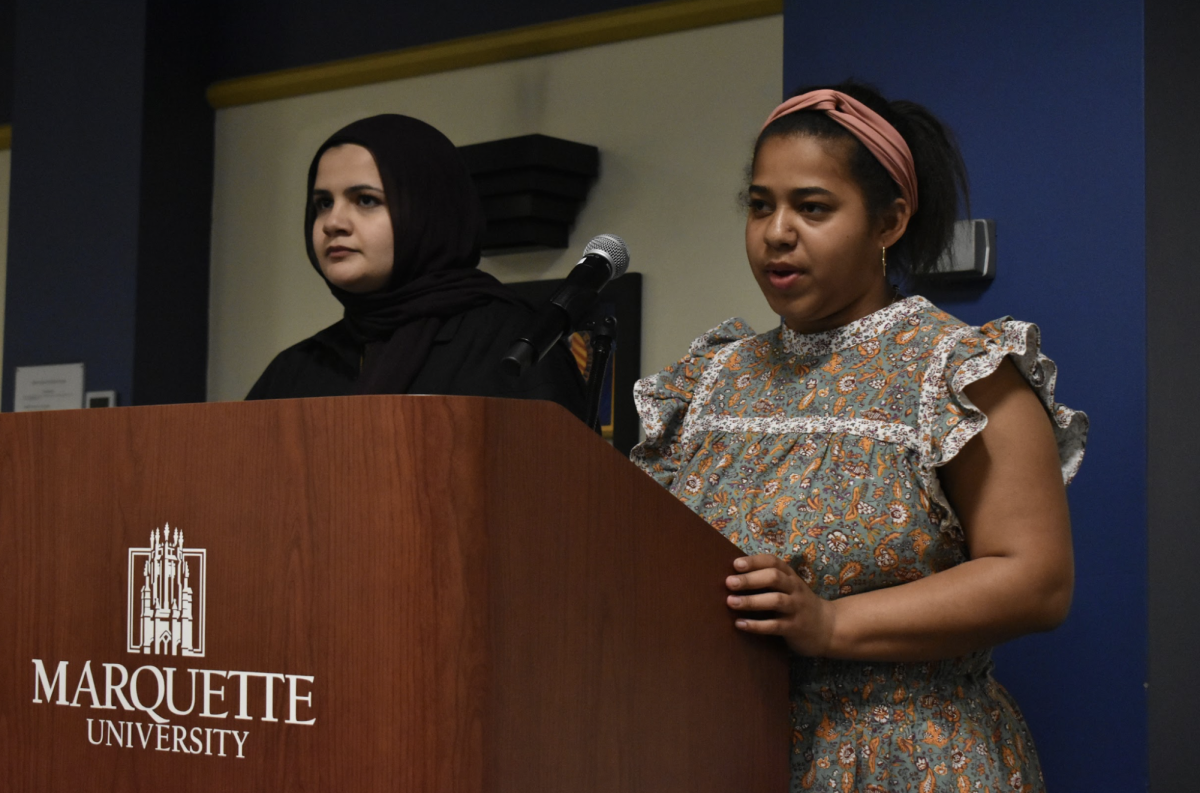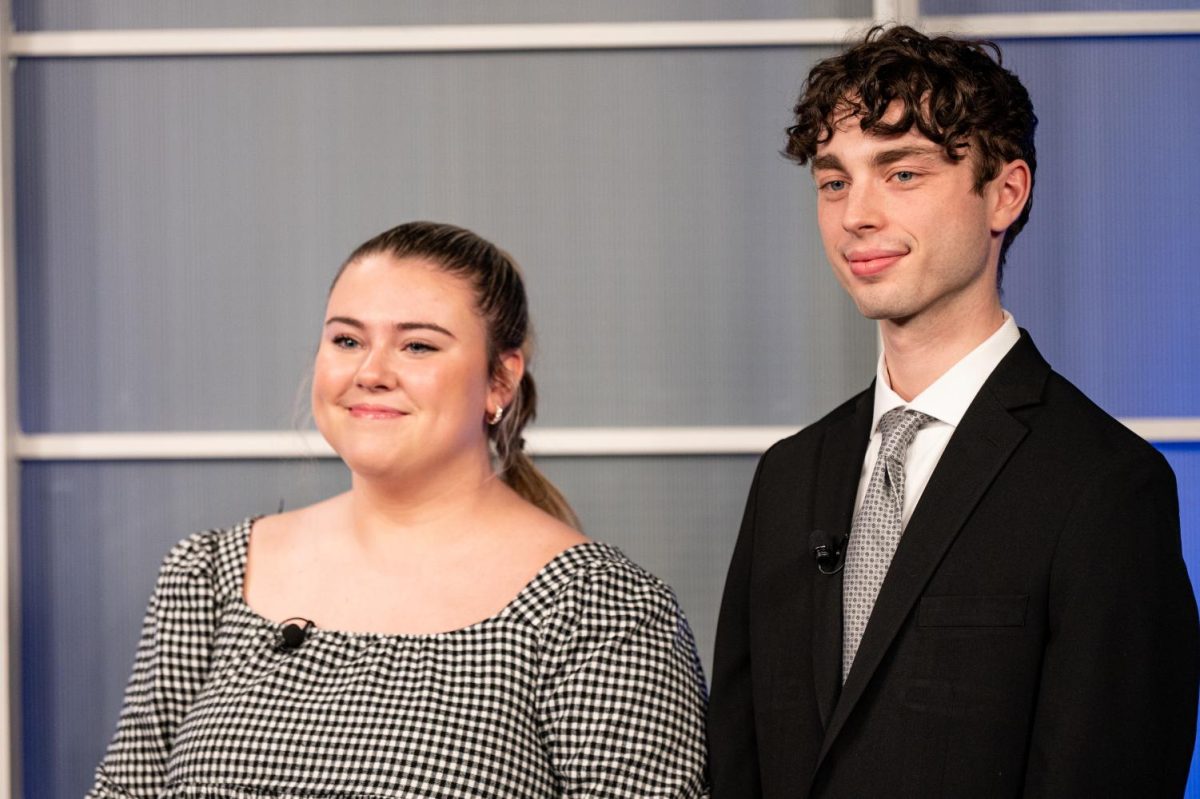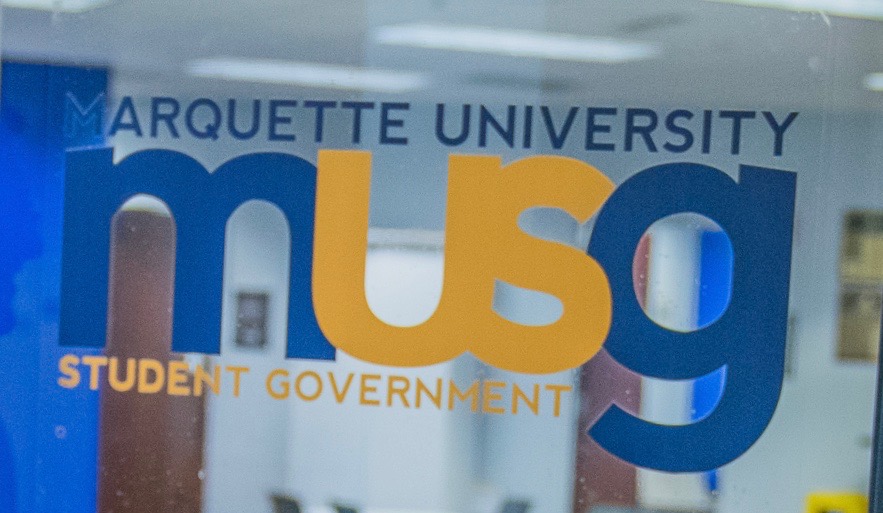
Legislation passed through the Marquette Student Government senate is one of the most tangible ways students see MUSG attempting to address student concern. But the MUSG senate hit a five-year low this year in the amount of legislation it passed.
While there are other factors that indicate MUSG’s productivity, the amount of legislation passed – including resolutions, memorandums and amendments – helps indicate how senators identify and attempt to address student concerns.
MUSG passed nine pieces of legislation this year, according to MUSG communications vice president and junior in the College of Communication Alex Lahr, five of which were amendments to its constitution. That’s down slightly from 10 pieces of legislation passed last year and represents a more than 50 percent decline from the 24 pieces of legislation passed in 2010-11. It is also the lowest amount of legislation passed by the MUSG senate in the last five years, according to MUSG legislative records.
Passing legislation is the main way MUSG attempts to respond to student concerns. It is written, put on the agenda for the next MUSG senate meeting and then voted on by the senate. If it passes, it goes to the president to be signed or vetoed. If it is signed, it goes on to university administrators chosen by the president.
Newly elected MUSG officials said they hope to increase student input and rejuvenate legislative efforts, which 2011-12 legislative vice president and senior in the College of Arts & Sciences Drew Halunen said have declined.
“Ideally, student input should be the primary driver of legislation,” Halunen said. “Unfortunately, effective student outreach has denigrated in the past year, often resulting in legislation written by executive members of the organization under the supervision of university administrators.”
Halunen ran against now-former MUSG president Arica Van Boxtel, a senior in the College of Communication, in the 2012 presidential election.
Van Boxtel said content of the legislation is its most important aspect, regardless of how the issues come to the attention of the senate.
“I think the key to any demonstration of productivity is the intention and effectiveness of legislation,” she said. “As president, when speaking with senators about legislation, one question I always asked was what is the goal of this legislation? … Legislation that is put together on short timelines is generally due to an external factor that requires a certain timeliness to reach senate and include the student voice.”
The legislative process
Newly elected MUSG president and junior in the College of Arts & Sciences Sam Schultz said legislative goals are often formed around student concerns and that MUSG tries to take that into account.
“Normally, we decide to take up issues based on student input,” Schultz said. “This can come in personal stories and problems people raise with us, survey results we receive or widespread reaction to certain issues.”
Despite the emphasis MUSG places on outreach and student input, Kyle Whelton, MUSG’s newly elected legislative vice president and a sophomore in the College of Arts & Sciences, said the MUSG executive board plays a significant role in framing what the senate tackles throughout the year. The MUSG executive board consists of the president, executive vice president, legislative vice president, financial vice president, programs vice president and communications vice president.
“Each of our executive board members has a vision for MUSG,” Whelton said, “and that contributes to the agenda we pursue for the year.”
According to the MUSG constitution, the function of MUSG is “to act as the primary student voice of the Marquette community … to promote and sponsor services for the student body (and) to recognize and support student organizations.”
Whelton added that the legislative vice president, who is elected by the senate and presides over it, plays a key role in senate productivity and motivation.
“The LVP is responsible for setting the tone of the senate and pushing a legislative agenda, yet it is the responsibility of the senators to write the legislation and bring it to the floor for debate,” Whelton said. “My job is then to set both broad and specific legislative goals for the senators to take initiative on.”
Schultz agreed that motivated senators are instrumental to authoring and passing legislation but added that advancing a legislative agenda often requires working closely with administrators.
“Obviously an MUSG senate that is passing a lot of legislation is a senate that probably has more highly-motivated senators, more issues that we feel are ready for legislation and an involved and engaged executive board,” Schultz said. “(But) a lot of the work we do on issues is behind the scenes in meetings with administrators.”
Contentious topics
Certain issues, such as academic advising, have been tackled and debated multiple times among the MUSG senate, while issues like the recent controversy surrounding the female sexuality workshop FemSex required immediate and timely attention. Legislation involving the new policies on student health care in December and student organization funding have also been highly contentious.
“There are two pieces of legislation that raised a lot of questions from senators this year,” Van Boxtel said. “The health care legislation was the first one, and then the removal of the SOF floor was another one. … Contention and questions are good, because it is with that that there are a variety of perspectives to ensure that the best decision is being made for the student body.”
Halunen said quality should be valued over quantity and that a low output of legislation does not necessarily point to a subpar senate.
“Would you rather have 15 pieces of rushed legislation in a semester or a few well developed bills that have a significant impact on the student population?” Halunen asked.
The role of student organization funding
One constant within the MUSG senate is approving student organization funding requests of more than $2,500. Tens of thousands of dollars are requested by student organizations each year. For example, in May 2011, $63,043.16 was requested by club sports, and in September 2011, other student organizations requested a total of $46,819.46. MUSG chose to allocate $28,622.09 and $18,095.82, respectively.
Each semester, Marquette students pay a $30 fee toward the MUSG budget. A large sum of that money is distributed to student organizations through the Student Organization Funding process, but the rest goes to supporting the inner workings of MUSG, its program board and its ability to give voice to student concerns.
Financial concerns, particularly those regarding the student organization funding process, often produce debate and gridlock within the senate.
“Anything involving finances is usually very contentious,” Whelton said.
The senate tried and failed last month to pass Amendment 5, which would have removed the minimum percentage of the student activity fee that must be set aside to be used in student organization funding. The amendment was authored by newly elected executive vice president and sophomore in the College of Arts & Sciences Zach Bowman and former candidate for executive vice president and Schroeder Hall senator Thomas Schick. Schick is a sophomore in the College of Arts & Sciences.
“MUSG, as the organization in charge of the student activity fee, has to decide how to best use that money,” Schick said. “Many people have different opinions on where and how this money should be spent.”









[email protected] • Apr 12, 2013 at 8:45 am
Knight Bresnahan was the solution
Jennifer • Apr 11, 2013 at 2:16 pm
I’m a senior, about to graduate this spring, and I never thought I’d say this but the quality of reporting done by the tribune has declined dramatically. By this I mean key facts about issues go unreported (e.g. the failure to report exactly what was in the FemSex curriculum). I can’t say whether this is down to bias or just ignorance.
But the fact is, the legislation mentioned above pertaining to MUSG student org funding was shot down for a very good reason. It was acknowledged by those in senate who did not write it as a poorly constructed document that did not address how much funding would decline or how these calculations would be made. When questioned, the authors of this legislation would only say it was a ‘complex calculation’ and refused to answer how they would determine the budget to clubs would get cut. Essentially, they did not know – it was going to be an arbitrary judgement call by political science majors with no background in finance, statistics or business.
Passing less legislation is not the issue. The real issue is that the legislation being authored is of poor quality and needs to be re-examined.
Emer • Apr 14, 2013 at 4:52 pm
I completely agree with your opinion, nevertheless, doesn’t it bother you that the people who authored this legislation which you referred to as the ones who “refused to answer” are still in power? (including important positions such as as the new Executive Vice President). I also agree with your opinion that the quality of reporting done by the tribune has declined dramatically. If the tribune would have published this article before the people in power ran for office again in the past election, the outcome of which would have varied greatly in my opinion.